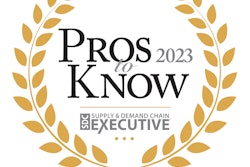
Global trade is changing rapidly as technology evolves the nature of trade negotiations. Similarly, digital platforms are turning around the economics of doing business across borders--reducing the cost of transactions–especially for small and medium-sized businesses (SMBs), who have been able to find alternative financing solutions. Options such as non-recourse invoice factoring mean SMBs can take advantage of one of their strongest assets -- their own buyer's credit rating, to sell their invoices and get paid immediately to solve working capital struggles.
Non-recourse invoice factoring means a payment method partner purchases invoices at a discount while also providing credit risk protection if the buyer goes bankrupt or doesn’t pay. In the past, access to non-recourse invoice factoring has been slow, paper-intensive and inaccessible to both SMB sellers and sellers whose buyers are also SMBs.
Digitization of international trade payments is minimizing the trade financing gap through increased operational efficiencies, reductions in complexity for the buyer and seller; access to a more comprehensive data set for underwriting; and enabling more buyers and sellers’ flexible payment solutions that optimize balance sheets and mitigate the supply chain risk that affects cash flow.
Payment automation allows companies to capture more financial data, an essential benefit for businesses looking to perform analysis and improve their efficiency, processes and payment strategy.
Financing facilitates trade management
In today’s economy, boosting productivity and financial health is top-of-mind for supply chain professionals. Amid supply chain and economic disruptions, many companies want to do more when it comes to freeing up working capital and strengthening their competitive advantage.
A well-executed program that optimizes exporters' working capital can be transformative for global supply chains. Alternative options for business loans that leverage an exporter’s foreign account receivables helped companies worldwide unlock significant amounts of cash flow each year. These alternatives work in concert with existing credit facilities since invoice factoring doesn’t add to an exporter’s debt. In addition, invoice factoring can very often provide much larger credit lines than traditional loan products.
To make the most of the new trading reality, where technology allows anyone with Internet access to trade online, businesses need to streamline their approach to global commerce, ensuring they have rapid access to the financing they need to maximize their working capital.
By using alternative solutions to business loans such as non-recourse invoice factoring, businesses benefit from early payment, having better visibility into payment processing, and accessing working capital that can help them navigate economic stress and invest in their growth.
Financing also enables exporters to better manage their liquidity when the certainty of payment has decreased, or timeliness of payments has increased. By smartly applying financing solutions that are best suited to your business, the credit available to the business, and therefore the cash available, can be maximized.
It is very common for sellers to invest upfront in raw materials, labor, and manufacturing to produce their goods. If they have leverage with their buyer, then maybe they can get paid upfront prior to production. But early payment is uncommon, over 90% of exporters in the United States provide payment terms to their buyers based on a MODIFI survey. It is more likely the seller is getting paid when the buyer receives the goods, or even 90-120 days after receipt.
In a typical invoice factoring arrangement, for example, a company may sell its outstanding invoices to a provider who pays up to 90% of their face value and assumes responsibility for collecting on the invoices. Once the invoices are settled, the seller receives the remaining balance minus a nominal fee from the payment method partner. This early invoice payment provides instant access to critical working capital that would otherwise be tied up until the buyer is required to settle their invoice on the due date.
Given that invoice due dates are often 30, 60, or even 90 days in the future as per standard B2B trading terms, invoice factoring provides business operators with better cash flow and the peace of mind that comes with it. This is especially true for SMBs, which are more likely to fall victim to cash flow woes due to inflexible payment terms.















![Pros To Know 2026 [color]](https://img.sdcexec.com/mindful/acbm/workspaces/default/uploads/2025/08/prostoknow-2026-color.mduFvhpgMk.png?ar=16%3A9&auto=format%2Ccompress&bg=fff&fill-color=fff&fit=fill&h=135&q=70&w=240)
